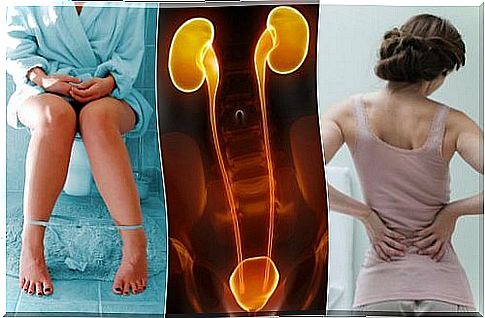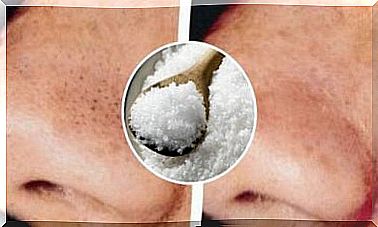Kidney Disease: 7 Symptoms To Identify It Quickly

Suffering from a kidney disorder can be very disabling. It is no secret to anyone that the proper functioning of these organs allows us to enjoy a good quality of life, at least as far as health is concerned.
Although we usually ignore the importance of these organs, their work helps us remove fluids and toxins that can damage the body.
During the day, in fact, they can process up to 190 liters of blood, expelling about two liters of water and residues.
Furthermore, since they regulate blood pressure and the production of certain hormones, they are crucial for our well-being.
It is therefore of primary importance to deal appropriately with any sign of abnormality or kidney disease. Any disorder can lead to the development of chronic problems.
On this occasion we list 7 symptoms that can occur when there is a kidney disorder.
Don’t underestimate the problem!
1. Water retention and inflammation symptom of kidney disorder

One of the initial signs of kidney problems are imbalances in the body’s inflammatory processes which, in principle, are accompanied by water retention.
These symptoms are the result of the kidney’s difficulty in filtering waste and producing urine, which is retained in the tissues.
Consult your doctor if you notice unusual inflammation in:
- Feet and ankles
- Hands
- Legs
- Face
- Abdomen
2. Changes in urination
Changes in urination can be a symptom to consider.
If you start going to the bathroom more often or less than you do for no apparent reason, some abnormality in kidney function may have occurred.
3. Changes in the appearance of urine

The consistency, color and smell of urine are characteristics that allow us to understand if the kidneys have difficulty in carrying out their functions.
Seeing for changes such as a more yellowish color than normal can be a warning sign of chronic infections or problems.
It is also necessary to check whether:
- The urine is foamy
- The smell is too strong or unpleasant
- There is a burning sensation when urinating
- There are bloodstains in the urine
4. Skin rashes
Although rashes can occur due to multiple factors, a kidney disorder could explain their presence.
Toxins that are not filtered by these organs remain in the bloodstream and, after being transported, alter the skin’s normal production of oils.
As a result, unsightly pimples appear, almost always accompanied by an annoying itchy sensation and irritation.
5. Pain in the lower back

Recurring pain in the lower back or one side of the body may indicate a kidney disorder.
This pain, which is common especially in old age, is caused by inflammation.
Although it may be a weakening of the muscles, the possibility that it is a problem with these organs should not be ruled out.
6. High blood pressure
People who are diagnosed with kidney failure or other kidney diseases must always keep their blood pressure under control, in fact it can undergo serious alterations.
The functions performed by these organs help keep potassium and sodium levels in balance, two minerals that are important for keeping blood pressure stable.
They also regulate the body’s fluids and, at the same time, prevent inflammation of the tissues and arteries.
Furthermore, it must be taken into account that hypertension may have its origin in a problem known as renal artery stenosis, which generates a partial obstruction of the artery that carries blood to the kidneys.
7. Feeling of fatigue

When the kidneys have some problems in carrying out their functions, it is very common to experience a feeling of fatigue and discomfort.
This is due to a lower production of a hormone known as erythropoietin. It intervenes in the production of red blood cells, which guarantee an excellent transport of oxygen and nutrients.
An imbalance can lead to chronic anemia, as well as causing nausea and concentration problems.
Do you recognize these symptoms? Keep in mind that most kidney problems can be resolved if diagnosed early.
Act immediately when faced with any warning signs and try to adopt healthy habits to reduce the risk.
Featured image courtesy of © wikiHow.com









